Trail Frame
A Trial Frame, also known as a Trial Lens Frame or Refractor, is an essential tool used in optometry and ophthalmology practices during eye examinations. It serves as a versatile device for holding and testing different lenses to determine the most accurate prescription for eyeglasses or contact lenses.
Benefits:
- Precision: Enables precise adjustment of lenses to achieve optimal visual correction tailored to the patient’s individual needs.
- Versatility: Accommodates a wide range of lenses and configurations to address various refractive errors and vision conditions.
- Patient-Centered Care: Facilitates interactive decision-making with the patient to ensure satisfaction with the final prescription.
Applications:
- Routine Eye Examinations: Used in every eye examination to determine or update prescriptions for eyeglasses or contact lenses.
- Vision Therapy: Supports the evaluation and monitoring of patients undergoing vision therapy or treatment for binocular vision disorders.
In summary, a Trial Frame is a crucial tool in the field of optometry and ophthalmology, providing flexibility and precision in assessing and correcting refractive errors to optimize visual acuity for patients.
Description
Trail Frame
A Trial Frame, also known as a Trial Lens Frame or Refractor, is an essential tool used in optometry and ophthalmology practices during eye examinations. It serves as a versatile device for holding and testing different lenses to determine the most accurate prescription for eyeglasses or contact lenses.
Key Features and Components:
- Adjustable Bridge and Temples: The trial frame features an adjustable bridge that allows for customization to fit various nasal bridge widths and heights comfortably. The temples (arms) of the frame are also adjustable to ensure a secure fit behind the ears.
- Lens Holding Mechanism: Designed to securely hold a wide range of lenses, including spherical, cylindrical (for astigmatism correction), prism (for correcting eye alignment issues), and auxiliary lenses (such as cross-cylinders or occluders for vision testing).
- Interchangeable Lenses: The trial frame enables optometrists and ophthalmologists to quickly insert and swap out different lenses to perform various tests and comparisons. This includes lenses from a Trial Lens Set, which contains lenses of different powers and configurations.
- Pupillary Distance Adjustment: Some trial frames allow for adjusting the distance between the centers of the lenses to match the patient’s pupillary distance (PD). This ensures that the lenses are positioned correctly relative to the patient’s eyes.
- Comfort and Stability: Designed to be lightweight yet durable, the trial frame ensures comfort for the patient during extended testing sessions. The adjustable features also contribute to stability and ease of use for the practitioner.
Functionality and Usage:
- Refraction Testing: The primary function of the trial frame is to conduct refraction tests, which determine the patient’s refractive error and prescription needs. By inserting different lenses and asking the patient to compare clarity and comfort, the optometrist can fine-tune the prescription.
- Comparison Testing: Allows for side-by-side comparison of different lenses to find the combination that provides the best visual acuity and comfort for the patient.
- Prescription Verification: Used to verify existing prescriptions or adjust prescriptions based on changes in the patient’s vision.
- Teaching and Demonstration: Essential for educational purposes in optometry schools and training programs, where students learn how to perform comprehensive eye examinations and prescribe corrective lenses.
Benefits:
- Precision: Enables precise adjustment of lenses to achieve optimal visual correction tailored to the patient’s individual needs.
- Versatility: Accommodates a wide range of lenses and configurations to address various refractive errors and vision conditions.
- Patient-Centered Care: Facilitates interactive decision-making with the patient to ensure satisfaction with the final prescription.
Applications:
- Routine Eye Examinations: Used in every eye examination to determine or update prescriptions for eyeglasses or contact lenses.
- Vision Therapy: Supports the evaluation and monitoring of patients undergoing vision therapy or treatment for binocular vision disorders.
In summary, a Trial Frame is a crucial tool in the field of optometry and ophthalmology, providing flexibility and precision in assessing and correcting refractive errors to optimize visual acuity for patients.

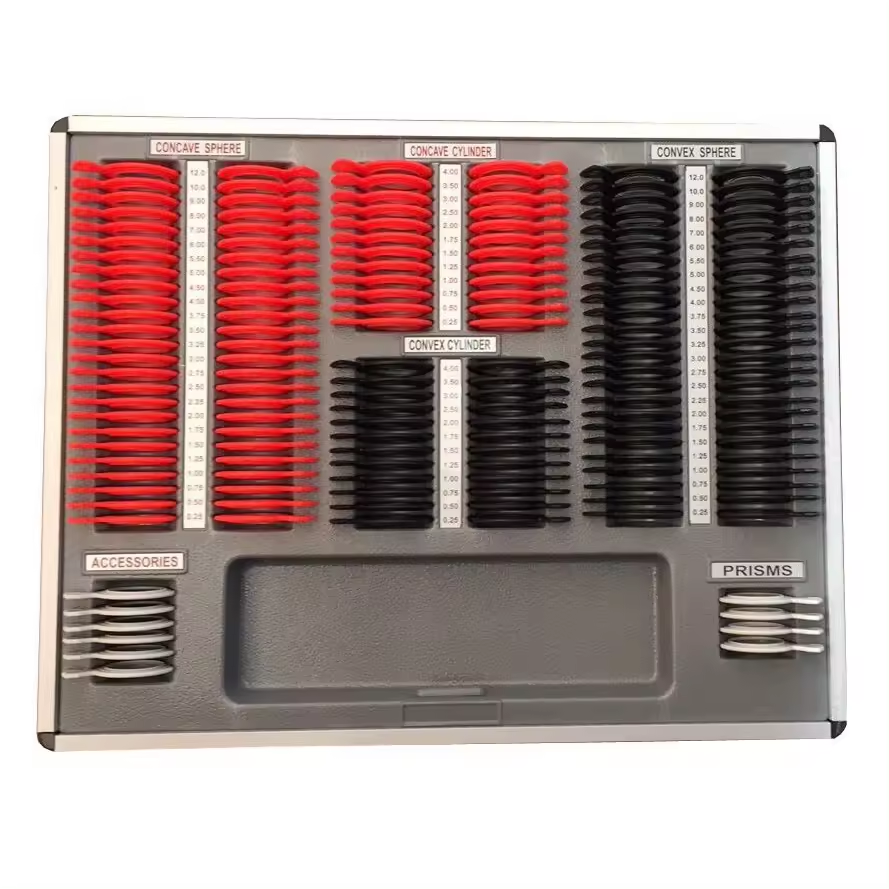
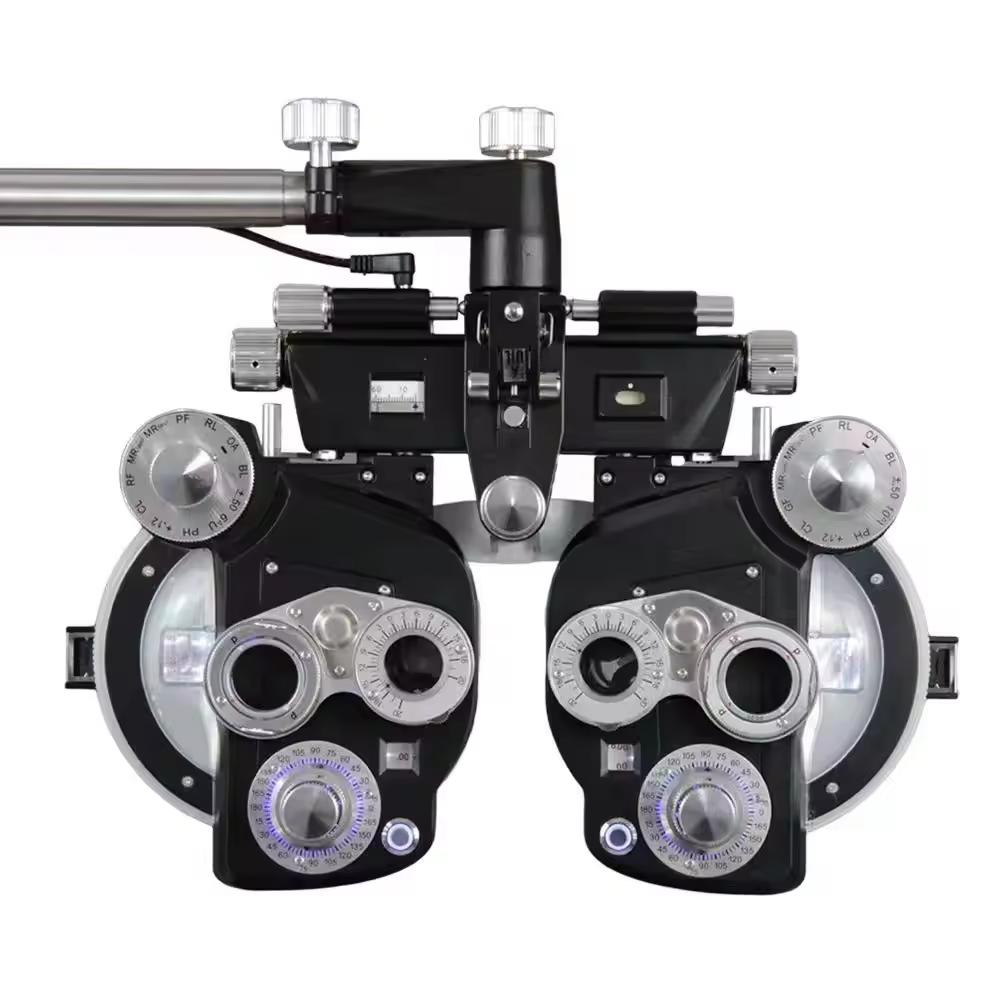

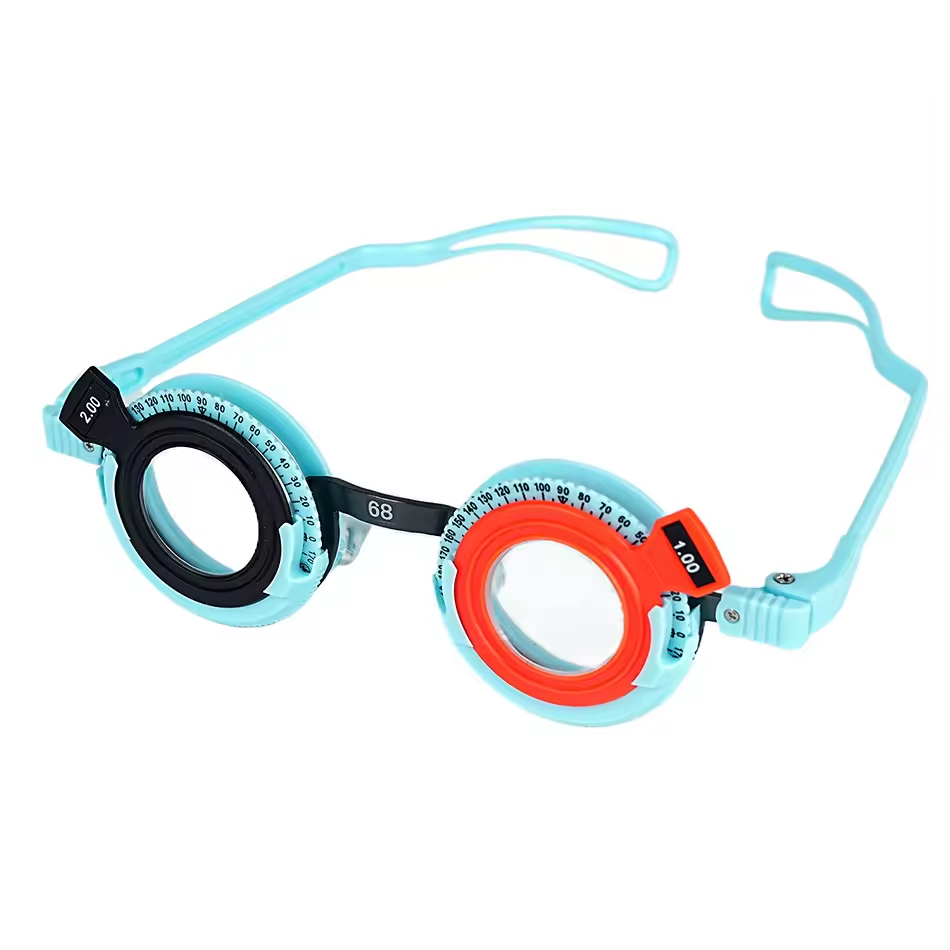
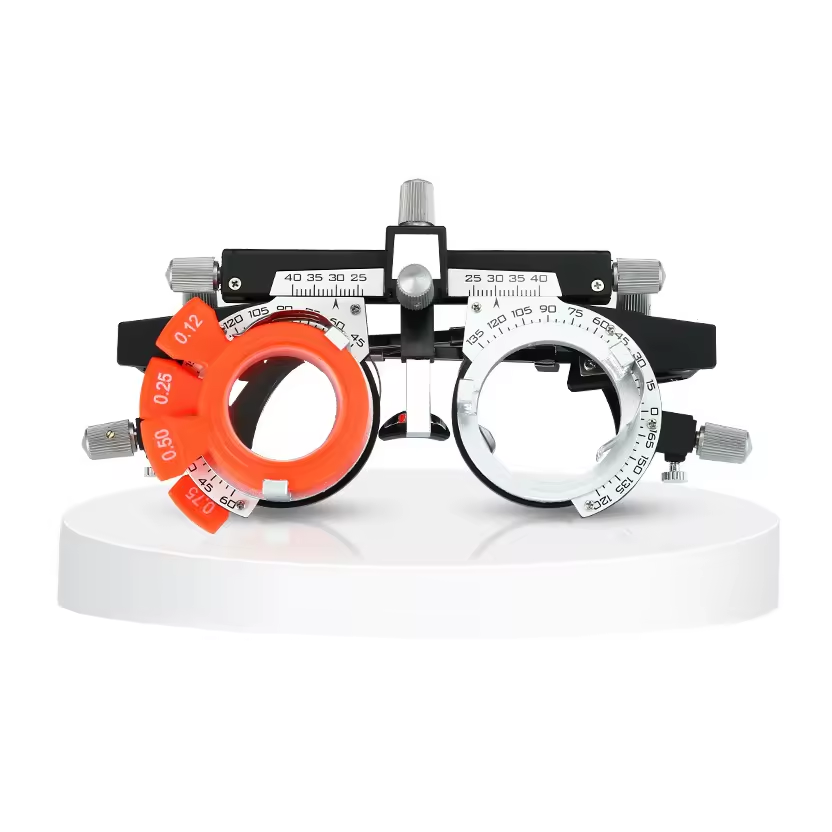
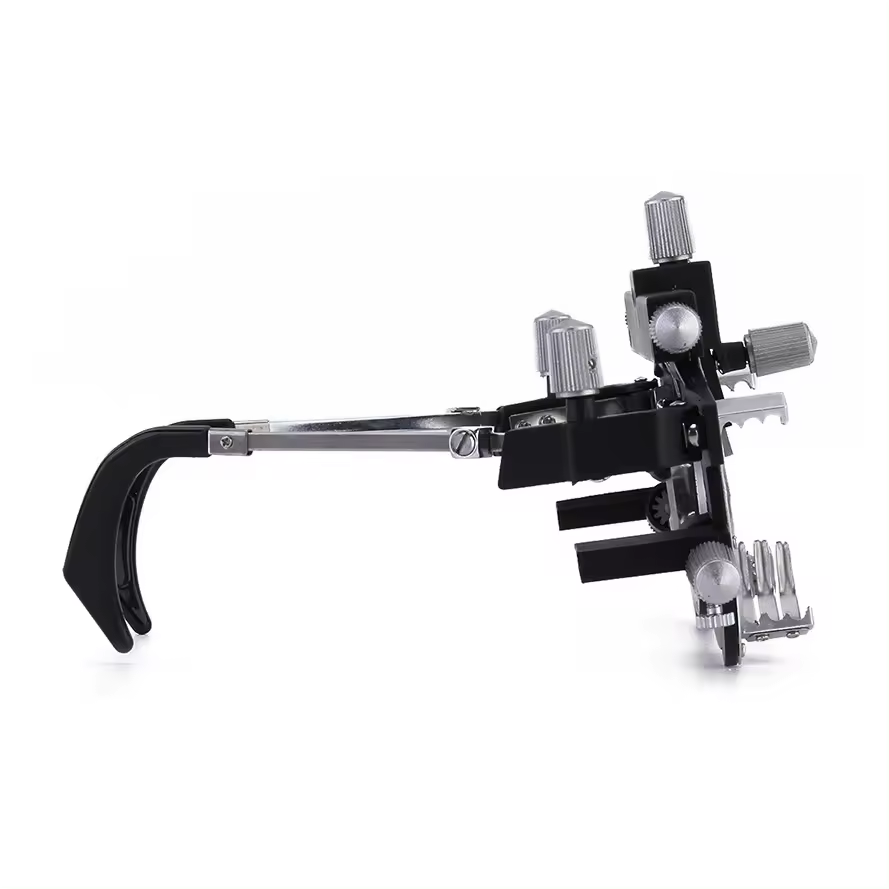
































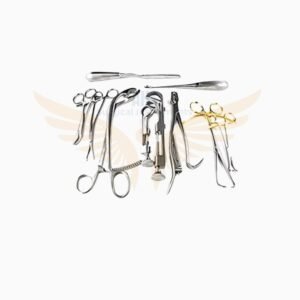





Reviews
There are no reviews yet.